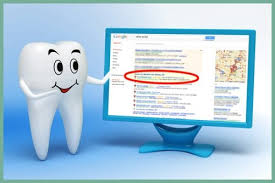Understanding On-Page and Off-Page SEO
Search Engine Optimization (SEO) is a crucial aspect of digital marketing that helps websites rank higher in search engine results pages. Two key components of SEO are On-Page and Off-Page optimization.
On-Page SEO
On-Page SEO refers to the practices implemented on a website to improve its search engine visibility. This includes optimizing content, meta tags, headings, images, and internal links. By focusing on on-page factors, websites can enhance their relevance for specific keywords and improve their rankings.
Key Elements of On-Page SEO:
- Keyword Optimization: Incorporating relevant keywords in titles, headings, and content.
- Meta Tags: Writing compelling meta titles and descriptions for search engines.
- Quality Content: Creating engaging and informative content that resonates with users.
- User Experience (UX): Ensuring easy navigation, fast loading times, and mobile-friendliness.
- Internal Linking: Linking related pages within the website to improve navigation and authority.
Off-Page SEO
Off-Page SEO focuses on external factors that influence a website’s search engine rankings. This includes building quality backlinks from reputable websites, social media engagement, online reputation management, and influencer outreach. Off-page strategies aim to increase a site’s authority and credibility in the eyes of search engines.
Main Components of Off-Page SEO:
- Link Building: Acquiring backlinks from authoritative sites to boost domain authority.
- Social Media Engagement: Sharing content on social platforms to drive traffic and increase brand visibility.
- Online Reputation Management: Monitoring reviews and feedback to maintain a positive online image.
- Influencer Outreach: Collaborating with industry influencers to promote products or services.
In conclusion, both On-Page and Off-Page SEO play vital roles in enhancing a website’s visibility and driving organic traffic. By implementing a holistic approach that combines these strategies effectively, businesses can improve their online presence, attract more visitors, and achieve sustainable growth in the competitive digital landscape.
Understanding On-Page and Off-Page SEO: Key FAQs and Best Practices
- What is On-Page SEO and how does it differ from Off-Page SEO?
- Why is keyword optimization important for On-Page SEO?
- How can I improve user experience on my website for better On-Page SEO?
- What are the best practices for building quality backlinks in Off-Page SEO?
- Is social media engagement essential for Off-Page SEO, and how does it impact rankings?
- How can I monitor and manage online reputation effectively as part of Off-Page SEO?
What is On-Page SEO and how does it differ from Off-Page SEO?
On-Page SEO refers to the optimization techniques implemented directly on a website to improve its search engine visibility and relevance for specific keywords. This includes strategies such as keyword optimization, meta tag creation, quality content development, user experience enhancement, and internal linking. In contrast, Off-Page SEO focuses on external factors that impact a site’s search engine rankings, such as building backlinks from reputable websites, engaging in social media activities, managing online reputation, and collaborating with influencers. The key difference between On-Page and Off-Page SEO lies in their areas of focus: On-Page SEO revolves around optimizing elements within the website itself, while Off-Page SEO centres on enhancing factors outside the website to boost its authority and credibility in the eyes of search engines. By combining both On-Page and Off-Page strategies effectively, businesses can achieve a comprehensive approach to SEO that drives organic traffic and improves online visibility.
Why is keyword optimization important for On-Page SEO?
Keyword optimization is paramount for On-Page SEO as it serves as the foundation for search engine visibility and relevance. By strategically incorporating relevant keywords into website content, meta tags, and headings, businesses can signal to search engines what their pages are about. This practice not only helps search engines understand the context of the content but also enables users to find the information they are looking for more easily. Effective keyword optimization enhances a website’s chances of ranking higher in search results for specific queries, driving targeted traffic and increasing overall visibility online. In essence, keyword optimization is the key to unlocking the potential of On-Page SEO and attracting valuable organic traffic to a website.
How can I improve user experience on my website for better On-Page SEO?
Improving user experience on your website is essential for enhancing On-Page SEO performance. To achieve this, focus on creating high-quality, relevant content that addresses users’ needs and interests. Ensure that your website is easy to navigate, with clear menu structures and intuitive design elements. Optimize page loading speed to reduce bounce rates and enhance user engagement. Incorporate multimedia elements such as images and videos to make your content more engaging. Utilize descriptive meta tags and headings to provide users with clear information about your content. By prioritizing user experience through these strategies, you can not only improve On-Page SEO but also increase user satisfaction and retention on your website.
What are the best practices for building quality backlinks in Off-Page SEO?
When it comes to Off-Page SEO and building quality backlinks, there are several best practices to follow for optimal results. Firstly, focus on acquiring backlinks from authoritative and relevant websites within your industry niche. Quality over quantity is key, so aim for links that come from trusted sources with high domain authority. Engaging in guest blogging, creating shareable content, and participating in industry forums can help attract natural backlinks. Additionally, conducting outreach campaigns to establish relationships with influencers and webmasters can lead to valuable link-building opportunities. Regularly monitoring backlink profiles and disavowing toxic links is essential to maintain a healthy link profile and enhance the credibility of your website in the eyes of search engines. By adhering to these best practices, businesses can strengthen their Off-Page SEO efforts and improve their website’s visibility in search engine rankings.
Is social media engagement essential for Off-Page SEO, and how does it impact rankings?
Social media engagement is indeed crucial for Off-Page SEO as it plays a significant role in enhancing a website’s online presence and authority. Active participation on social platforms allows businesses to share their content, attract a wider audience, and drive traffic back to their websites. Additionally, social signals such as likes, shares, and comments indicate to search engines that the content is valuable and engaging, which can positively impact rankings. By building a strong social media presence and fostering meaningful interactions with users, businesses can strengthen their off-page SEO efforts and improve their visibility in search engine results pages.
How can I monitor and manage online reputation effectively as part of Off-Page SEO?
Monitoring and managing online reputation effectively is a crucial aspect of Off-Page SEO. To maintain a positive online image, businesses can implement various strategies such as regularly monitoring reviews and feedback on review platforms, social media channels, and Google My Business. Responding promptly to both positive and negative feedback shows transparency and a commitment to customer satisfaction. Engaging with customers through social media, addressing any issues promptly, and showcasing testimonials can also help build trust and credibility. Collaborating with influencers or industry experts to endorse your brand can further enhance your reputation online. By consistently monitoring and managing your online reputation, you can strengthen your brand’s credibility, attract more customers, and improve your search engine rankings through Off-Page SEO efforts.




